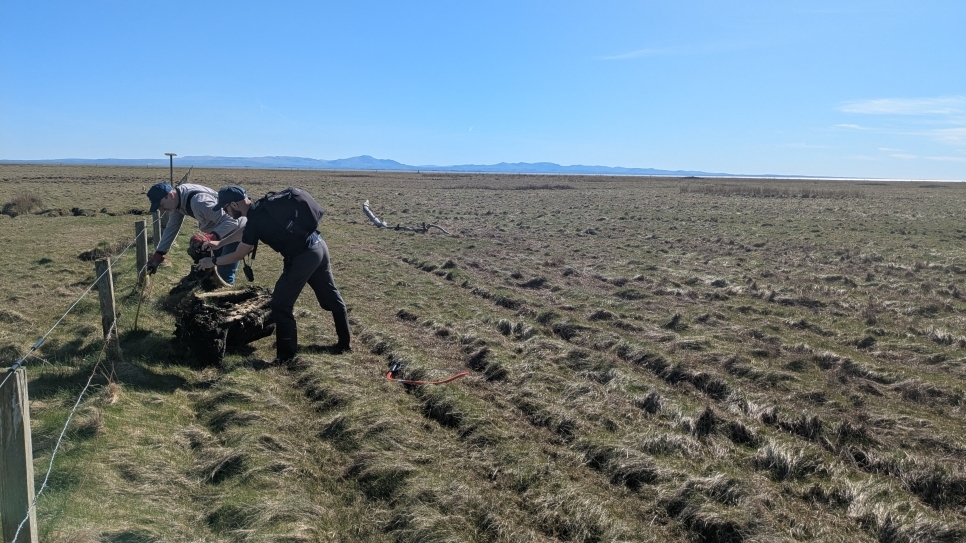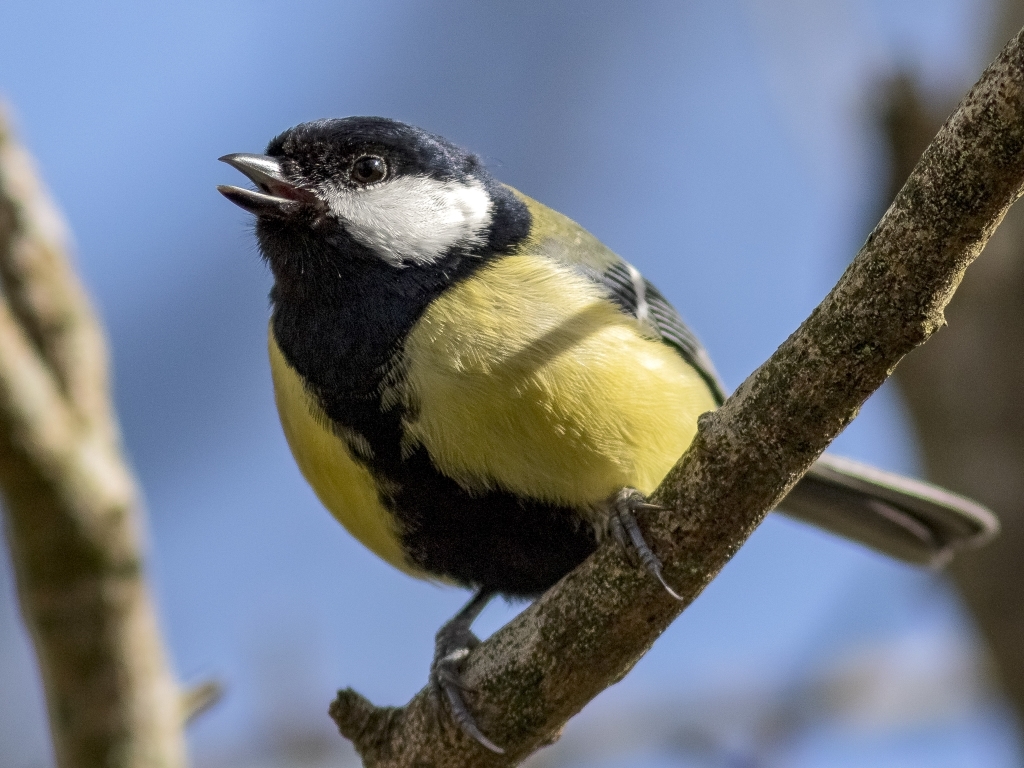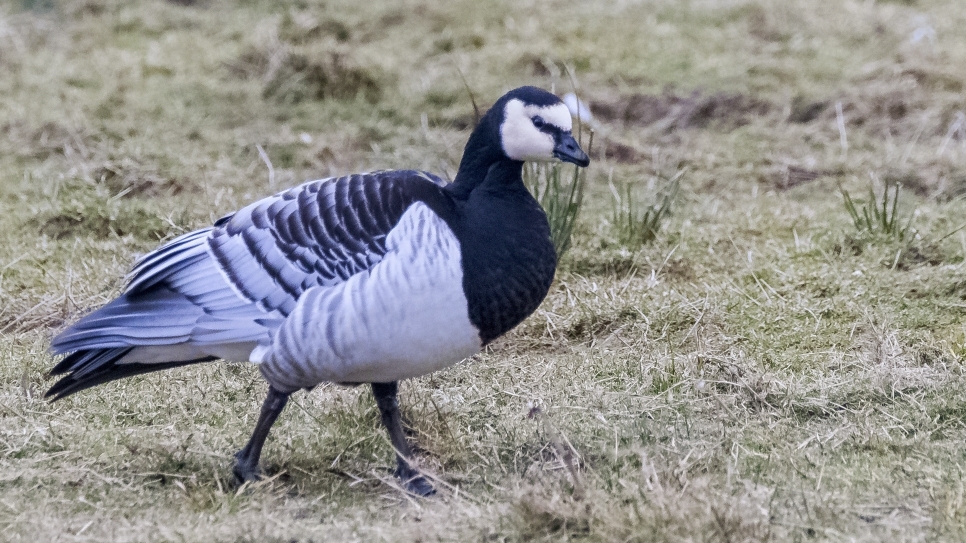How we survey natterjack toads
We welcomed Amphibian and Reptile Conservation to lead some natterjack toad survey training at WWT Caerlaverock in May.
At the training session, we were introduced to the species ecology and identification, methods of surveying and the importance of conserving the species. Natterjacks are threatened by habitat loss in the UK and part of Caerlaverock’s habitat restoration work has a natterjack focus. The toads have very particular habitat needs so any work we do has to consider these. They require pools of certain depths so they can be warmed but not dry out and the vegetation surrounding them to be a specific length that is easy to walk through.
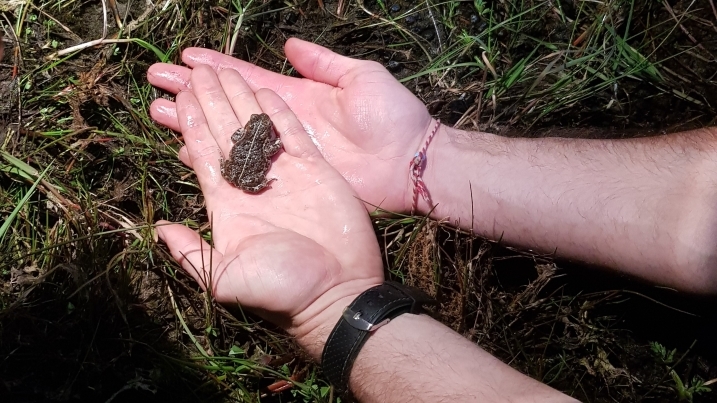
Natterjack toad in hand. The dorsal stripe is clear to see.
After the initial talk, we headed out on to the reserve with the hope of hearing them and, if we were very lucky, seeing some (listening for their calls is a lower effort survey method for these toads). We eagerly entered each compartment, scanning the ponds for any signs of toad-life. We didn’t seem to be having much luck on the natterjack front but we did spot a common toad and several newts. We were beginning to lose hope when we heard distant singing coming from where we had started. A quiet but brisk walk back to the first pond and the singing began to get louder. We returned to the area we thought the singing was coming from and to our amazement, there lay a natterjack – the first one I’d ever seen but easily identifiable thanks to the yellow dorsal stripe. In the aftermath of this excitement, we kept searching the pond for more. We found spawn string near to where the adult was found and two further adults (these are other indicators that we survey for).
Since the training, we’ve been lucky to hear them singing several times, a couple of times during the day even! We have now started carrying out weekly surveys checking ponds around the site and fortnightly surveying in the evening listening out for their singing and hoping to find adults.
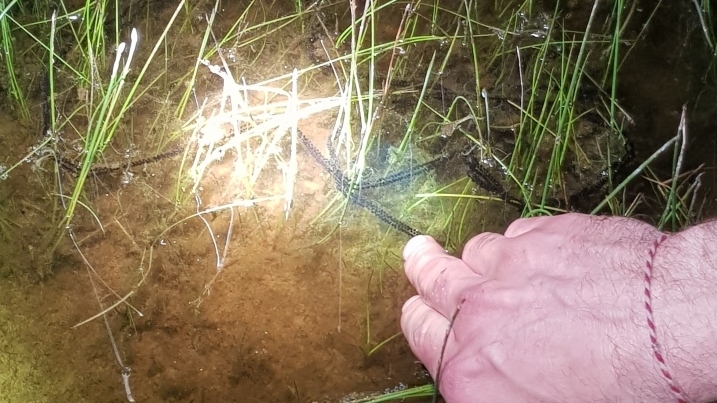
Natterjack toad spawn strings under torch light
All handling and surveying of natterjack toads is done under license.
Words by Megan Grisewood-Foley
Feature image by Nick Cottrell
